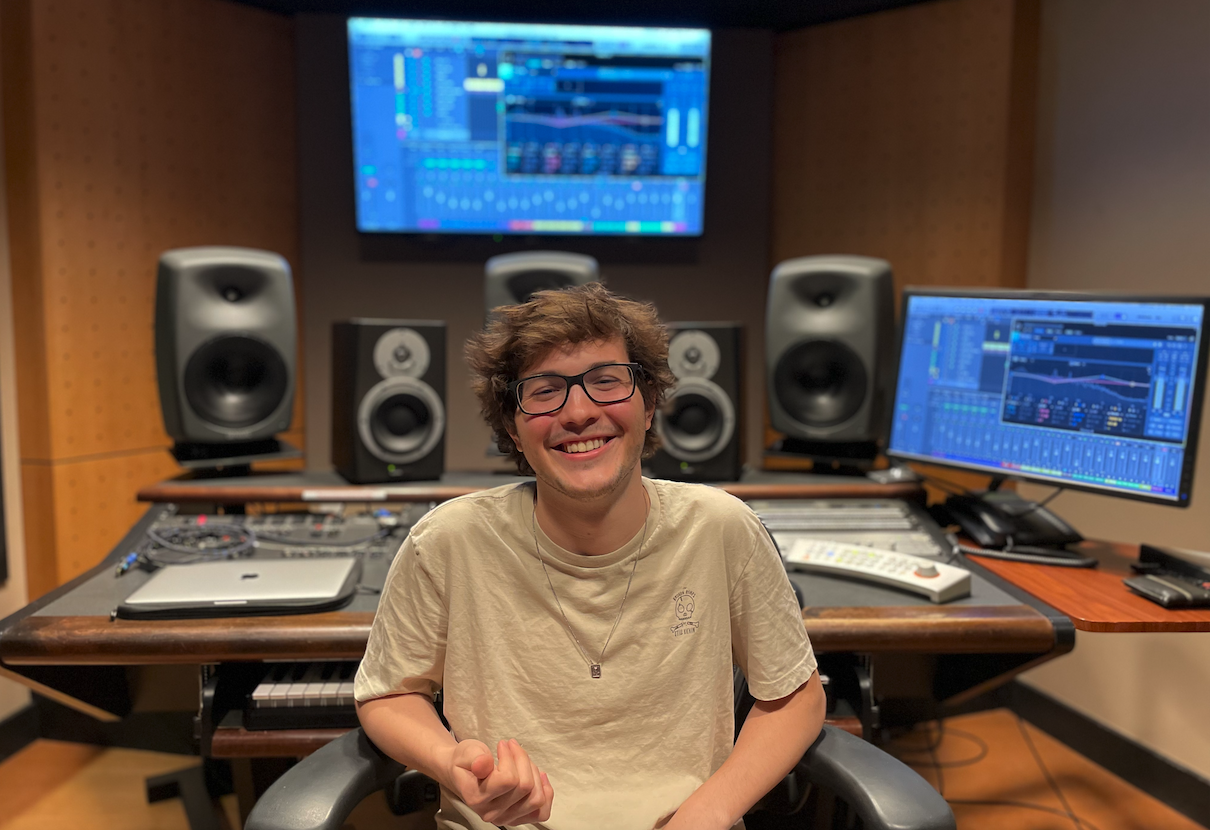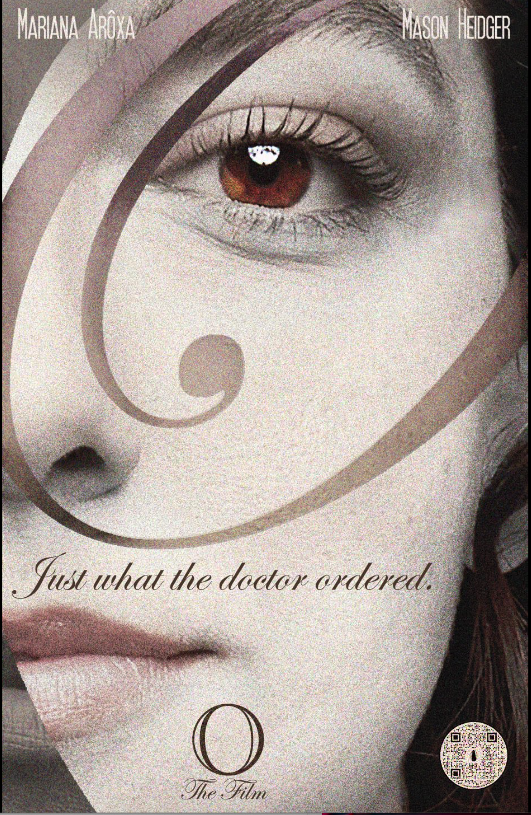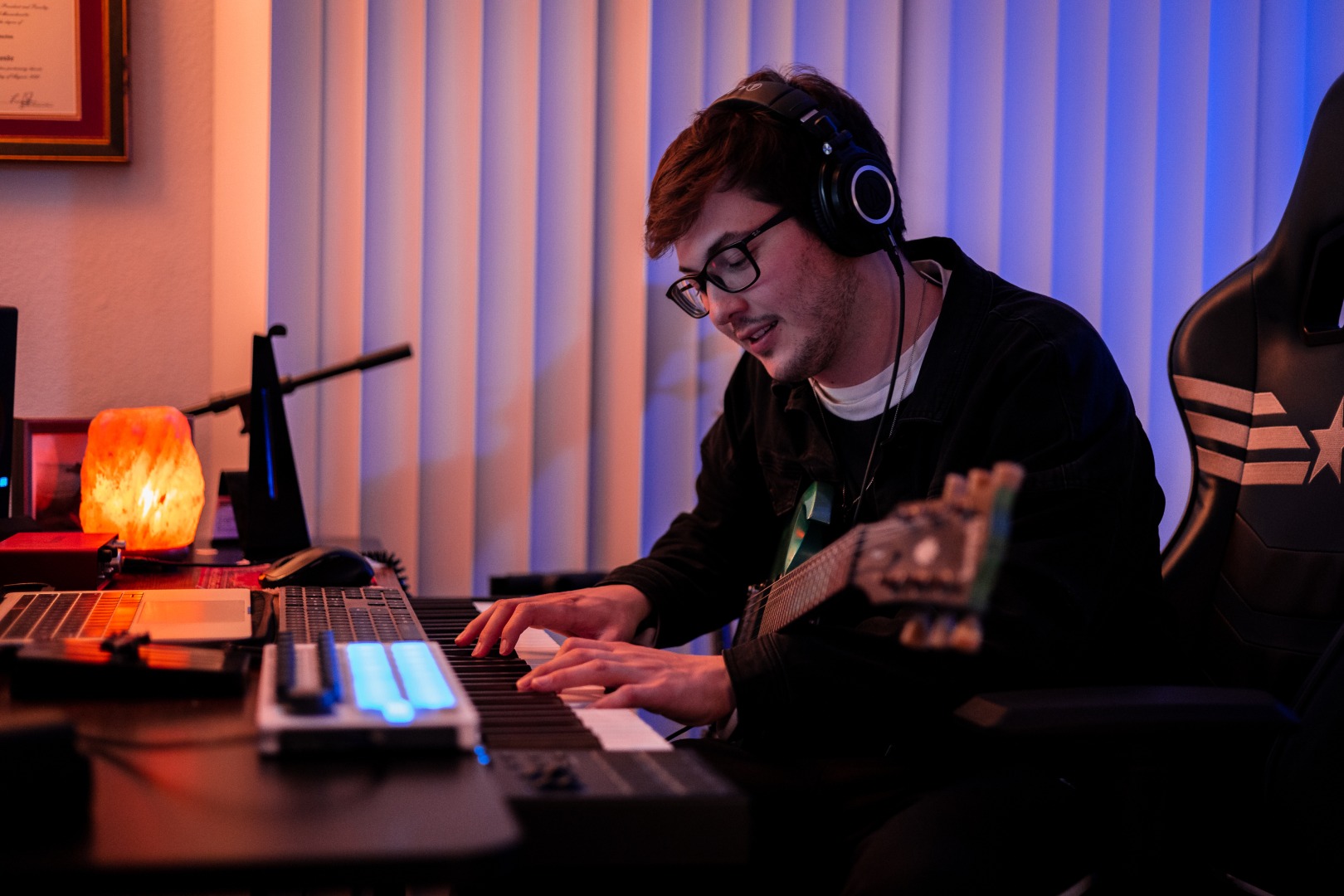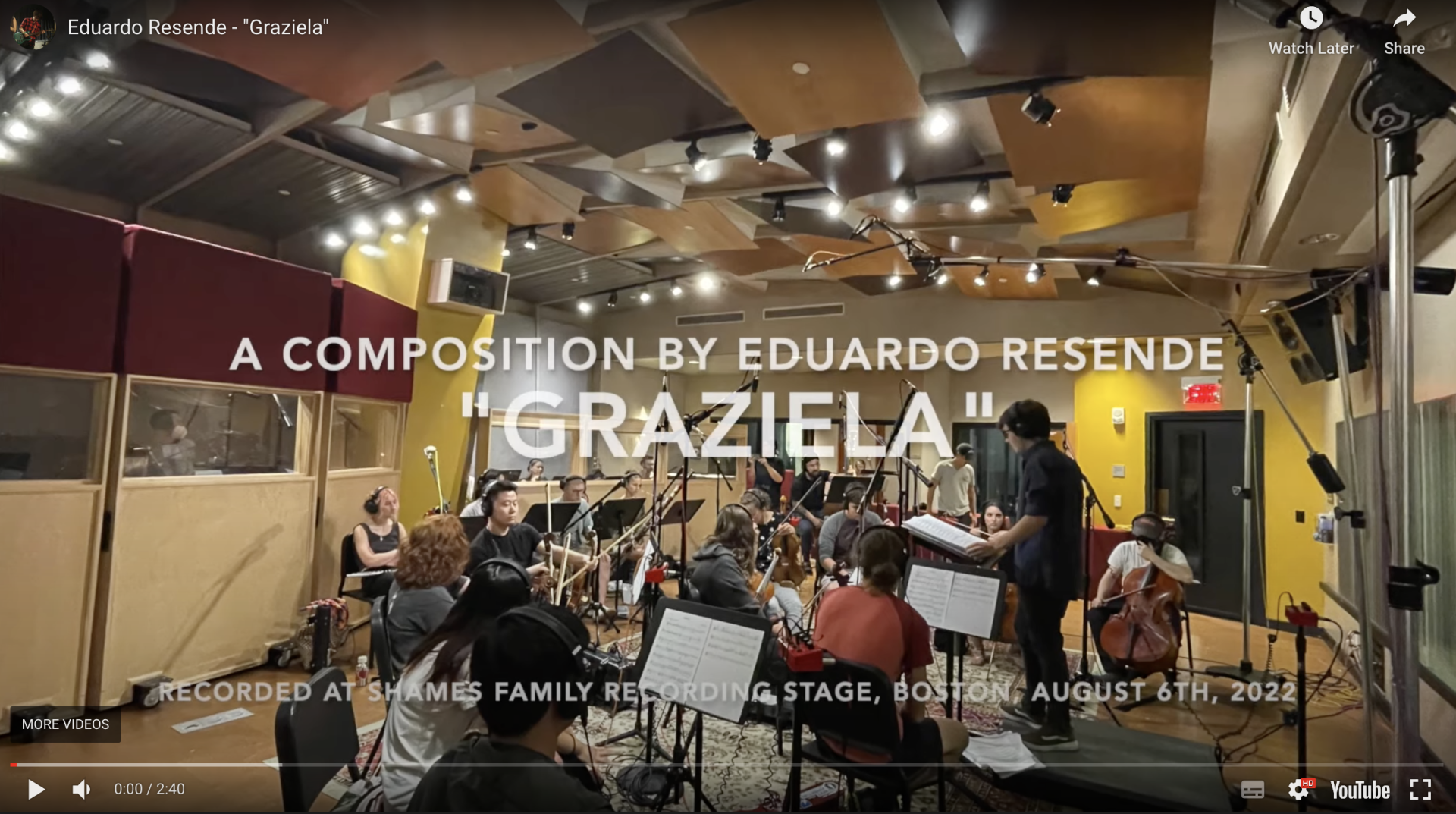
Multi-Talented Film Composer & Musician Eduardo Resende Delivers Electronic, Pop, Trap and Rock Influences
“While I’ve been proud to work with several award-winning composers/producers, and I dream of winning music awards, too, I had an exhilarating ‘aha’ moment that proved that I’m heading in the right direction. I was strolling through Santa Monica, past a packed sports bar watching an NFL game. Suddenly, I heard this familiar melody—wow, it was something I’d written for CBS. It was a chilling and unforgettable feeling realizing that hundreds of thousands of people across the country were hearing my music on TV.
Eduardo Resende”
Wow, indeed.
But not surprising, because composer/producer/musician Eduardo Resende lives and breathes music. The Brazilian-born former touring guitarist and in-studio engineer/producer, now writes and produces music for networks like the Discovery Channel and the CBS network, and for others.
Most importantly, writing, producing and recording an album for television’s NFL on CBS was a prime example of what he brings to the table, as he explains, “Because of my varied musical background, I’m able to cover many genres that are not commonly associated with music for film or TV, like electronic, pop, trap and rock. And, I feel the reason I’ve also contributed to several Discovery productions is that I bring a lot of value through the variety of genres of music that I can present to their shows. For example, the award-winning lifestyle show Chasin’ the Sun really needed some tropical-electronic music for their segments in Panama City. The fact that I was able to quickly write and produce tracks for them with live-recorded guitars is why you can hear my music in the seventh season of the show.”

In fact, some of the other shows that Resende’s music has appeared on include Discovery TV shows such as Murder in the Heartland, Sister Wives, Death by Fame, and Halloween Wars. Additionally, he recently worked on the Netflix film The Secret Diary of an Exchange Student. Moreover, he has worked with sought-after film composer Steve Davis who has written additional music for Top Gun: Maverick the Oscar-winning film for Best Sound, as well as additional music for Bad Boys for Life, Dungeons & Dragons, Dwayne Johnson’s Black Adam, and Gemini Man, among others.

And, most recently, Resende worked as a sound studio assistant on the short movie, “O”, which has been selected at the Oscar qualifying 2023 LA Shorts International Film Festival. (“O” is linked here on IMDb).
In-demand Resende uses his broad musical palette, steeped in his Brazilian roots, to emphasize storytelling in his creations for film, TV and video games. Resende’s multi-textured musical journey started at eight when he began learning guitar and also includes getting a Bachelor's Degree in Contemporary Writing and Production with a Minor in Video Game Scoring from the prestigious Berklee College of Music in Boston.
This engaging and charming composer/producer/musician, who has also collaborated with two-time Latin Grammy award-winning composer and producer Daniel Figueiredo, talks to us about his strengths, the tools he offers producers and composers, and the importance of music in storytelling in visual media:
What Changes Have you Seen as Music is Increasingly used to Aid that Storytelling?
Something that I’ve noticed is how every genre of music has gained its own space in visual media. Previously, you’d think that you needed to be great at orchestral music if you wanted to be a film composer. But nowadays there are so many movies, TV shows and games that rely on all types of music. And, because I’ve always been a producer as well as a composer, I’ve been able to write for any necessary genre. A great example of that was last summer when I was writing a piece for a 30-piece orchestra and simultaneously writing a rock album for Discovery. The more fields that you can cover the better, and thankfully there’s a need for all of it.
Generally, How Does Music Contribute to Storytelling?
Music has a major role in the storytelling aspect of any media. Just imagine seeing the power-hungry Star Wars character Darth Vader walking into the scene without his iconic Theme playing in the background. It would just be a weird guy dressed up with a cape. All jokes aside, music can always be useful to bring something to a scene that just isn’t there during the production, but it can be added in post-production. Ideally music can become such a big part of a project that it’s almost a character, a remarkable aspect of the project that will always be remembered.
How Would you Describe the Strengths you Offer to Producers?
I think that the biggest thing that my intense education at Berklee taught me was discipline. As a composer and producer, deadlines are a key part of my career, and in this industry, if you miss the deadline, you miss the gig, simple as that. A recent example of handling a quick turnaround, happened with the upcoming World War II drama, 3 Days in Malay. It was my first project with the Latin Grammy-winner composer Daniel Figueiredo. It involved a very tight deadline where he needed me to help out with some of the arrangements. It was challenging and fun, and I can’t wait for the world to see this film, when it’s released.

Talk about the Importance of Creating on the Spur of the Moment?
When I was working on a piece for the movie The Secret Diary of an Exchange Student, they needed an acoustic guitar to be the main instrument and there was no time to wait, I had to come up with an arrangement and record on the fly, but I managed to pull it off, and that’s what you hear in the movie. The same thing goes for TV music, where the deadlines are always so tight. Once I had to quickly come up with and record a bunch of guitar melodies. Every time I hear it on the show Chasin’ the Sun, I remember how fast the turnaround was, but I enjoy the pressure of those deadlines and then getting the job done to the client’s satisfaction.
Where Did you Learn the Importance of Teamwork in Music?
From my teenaged years of playing with bands all over Rio, I learned that playing on a stage with other people is the best way to raise your musicianship. Additionally, looking back I realize how much I learned from playing with other people. Regardless of your field, music will always be a collaborative process. Composers from films, TV shows and video games will always have other composers working with them. Producers will always manage other musicians that are playing on their records. Music will always be about working together, and my years of playing in bands will always have a big impact on who I am as a musician today. And, here is an instance of that teamwork plus working on the fly, one of my assets. Sea Sounds is a project that I’m very proud of that I wrote with Brazilian DJ and producer “Lacosh.” Originally, the game plan was that I’d write the song on piano, send it to Lacosh, and we’d have a female singer then record the vocals. What ended up happening was that the final vocals were actually me singing at 2am in the morning. The track was released under Sony Music and on Spotify, Sea Sounds has more than 128,000 plays to date.
To listen to his reel, drop in on Eduardo Resende’s Music website and also check out his LinkedIn and IMDb pages.
Trending
-
1 Jocko Willink's Inspirational Life & Net Worth
Aaqil Ashraf -
2 How Art Shapes Culture and Reflects Human Experience
Luke Fitzpatrick -
3 Meet Felix Williams and Maria Arthuer: The Parents of World Class Winger Nico Williams
Felix Yim -
4 Kai Cenat's Dad and the Enduring Public Interest
Aaqil Ashraf -
5 London Tube Stations Closed as Workers Stage Strikes
Mihir Gadhvi






Comments